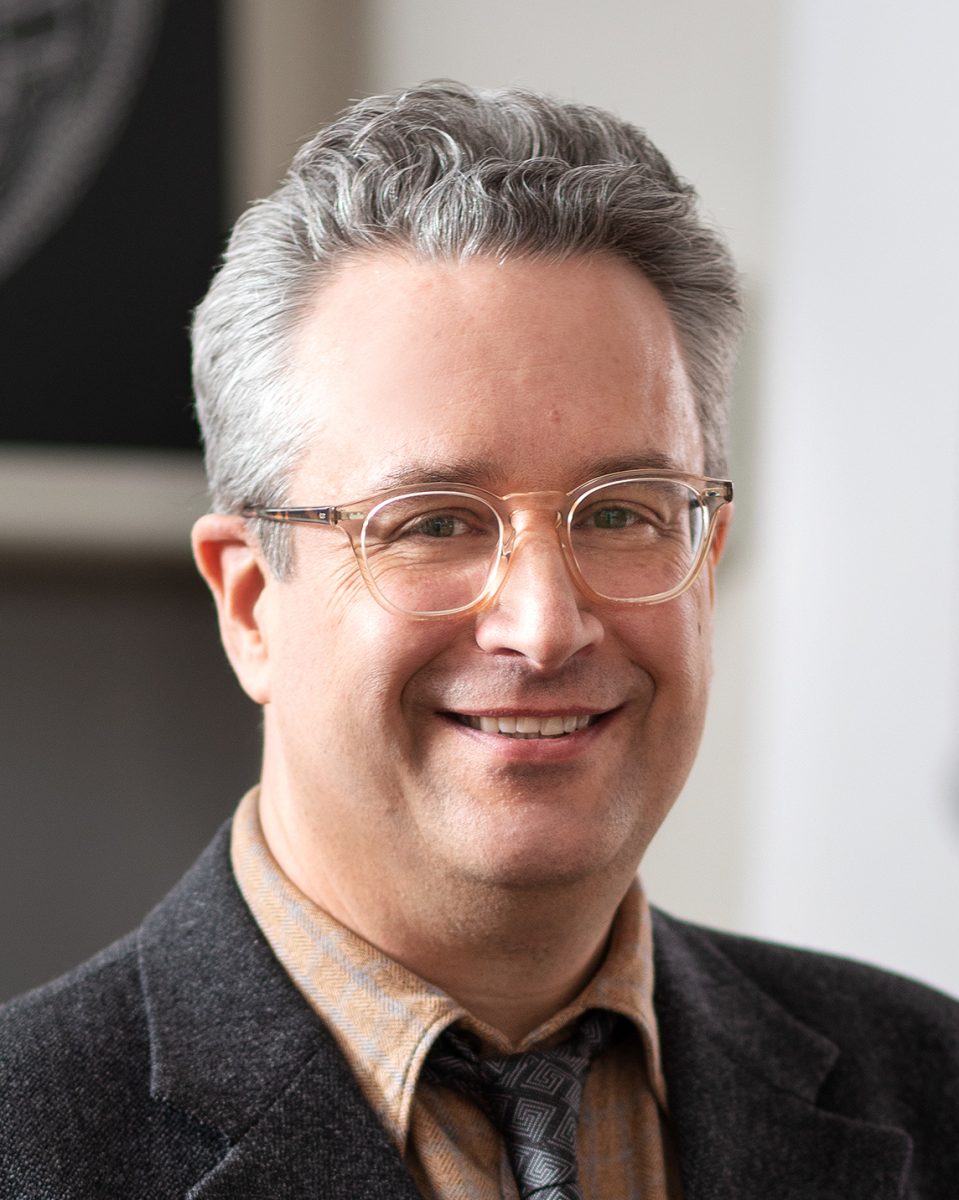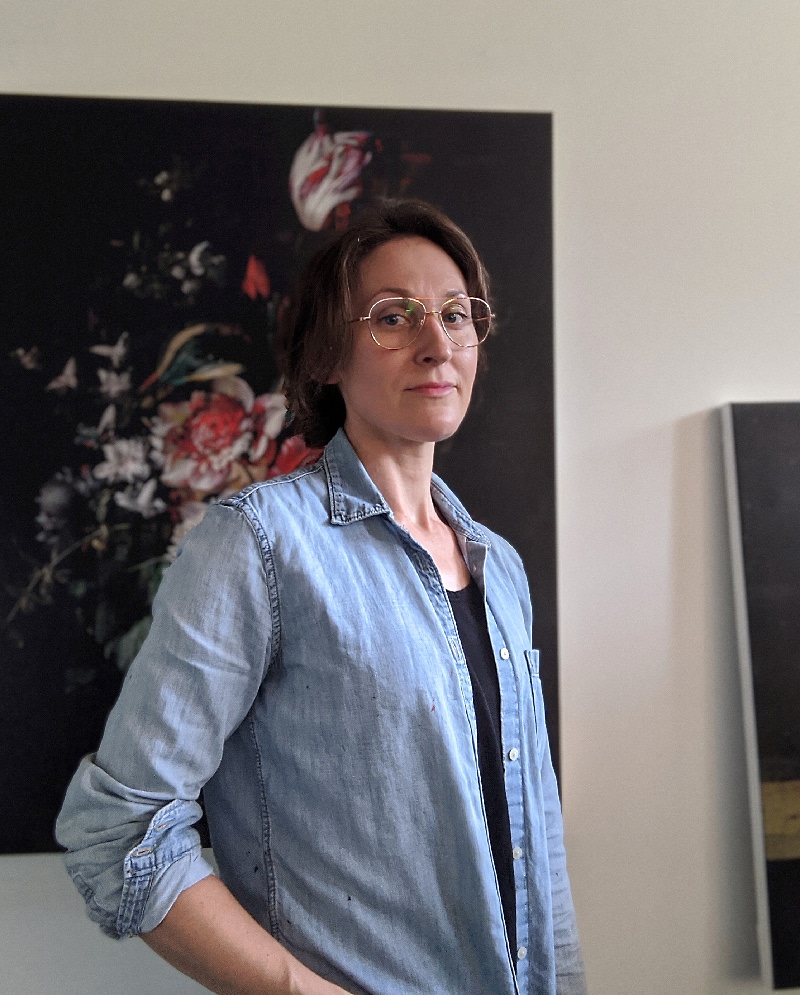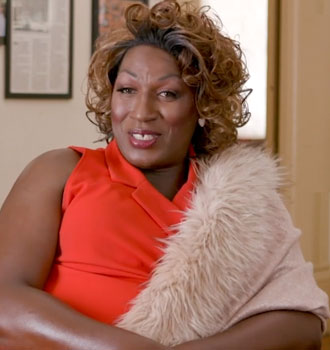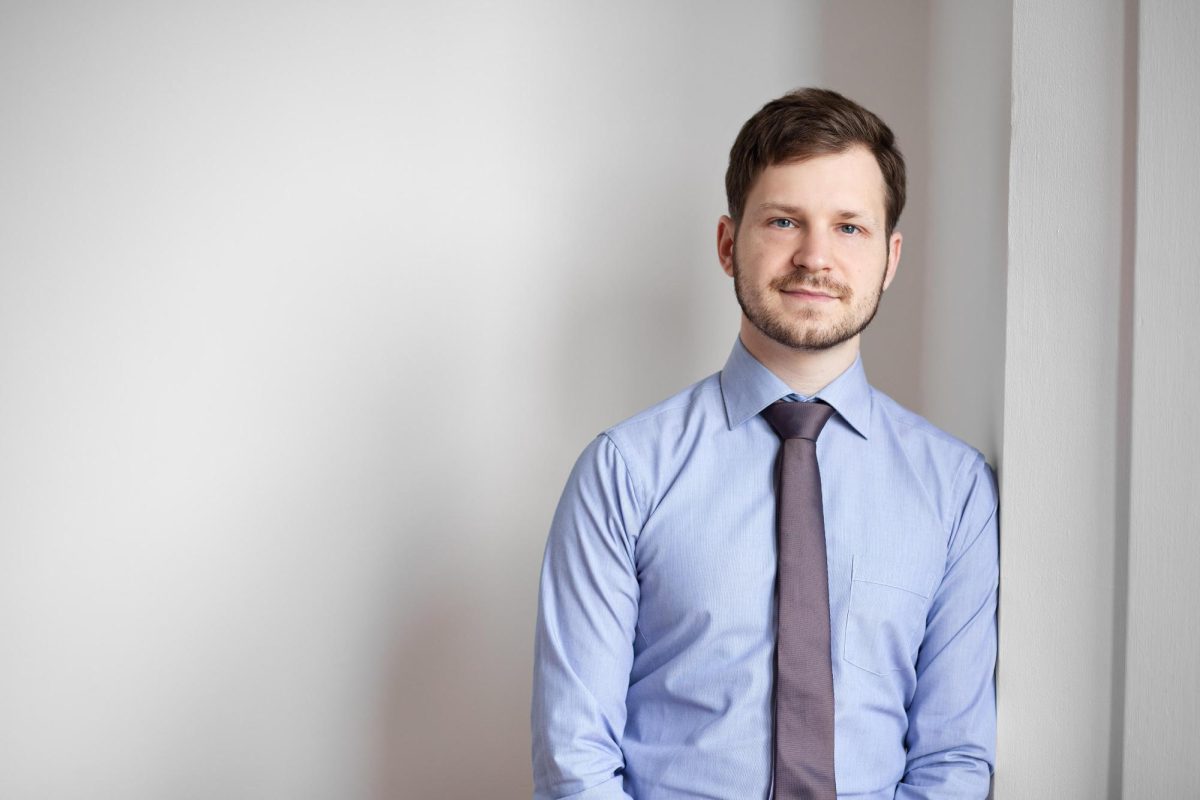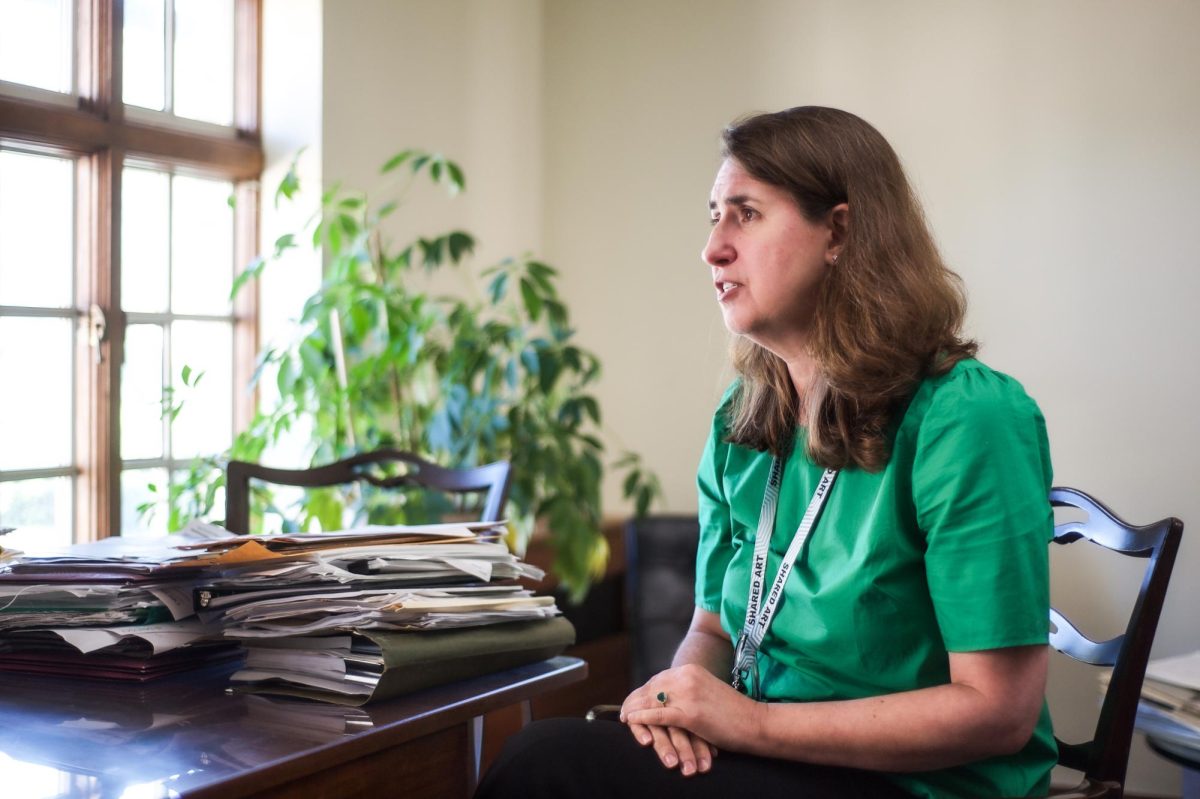Anna Aubry, OC ’21, graduated with a degree in Theater, receiving Highest Honors and the Nash Drama Award. She is currently a cast member on Brooklyn Comedy Collective’s What Made You Laugh and will soon join Upright Citizens Brigade’s Lloyd Night. Aubry recently performed Doom Tank, a one-woman show rewritten from her original thesis project at Oberlin.
This interview has been edited for length and clarity.
What is it like performing in a one-woman show? What differences are there from more traditional performances?
My favorite part of being creative is collaboration with other people. I find it so much more inspiring. So it’s funny that I’ve ended up doing this one-person show. Challenging my own endurance felt like the biggest part of doing a one-person performance, as well as challenging myself to figure out, “Do I have my own back?” On the second night of the show, half of the technical elements didn’t work, and I didn’t get the cues that I was supposed to. I only had myself on stage to deal with that situation. It was really meaningful creatively, and that gives me confidence as an artist to realize I don’t need to rely on other people to make work or give me opportunities. I can just create something myself and have that be worthwhile. I think what made it possible to put on one-person performances is that I still had a team of people. I had a director, a producer, and a stage manager who were all really incredible. I think it is wonderful, even in a one-person performance or project, to find people to support you because it can be isolating to fully take on something yourself.
You first performed the show at Oberlin, and though it has a different title now, did you revise it at all? If so, what was that process like?
I revised it a lot. It’s still the same play, but what’s so awesome about the editing process is that you do something once, see what works and what doesn’t, and not have that be the finished product forever. The old title was Funny Girl, which already exists. So I had to change it, but in changing the title, it made the project feel very fresh and gave it a different lens when I was approaching my rewrites. It reframed what the project was about to me, which was really exciting, and I think it would have felt much more stale if I had gone into it the second time with the same title. There was so much discovery through the process of performing my own words. I got to go back and clarify my voice and what I was trying to say with the piece, which was much clearer the second time. The original version was my thesis, and I pitched it and agreed to do it before I had any idea what it was going to be. It was really meaningful to come back to it and slowly chisel away at it over two years.
What are the differences between performing and pursuing theater in a college setting versus the setting you’re in now?
One thing that’s different at Oberlin is that you’re getting graded on your creative work, and you have professors encouraging you the whole time, which is really wonderful. You don’t have that as much in the real world — there’s no one telling you that you’re doing a good job. Even though that can be jarring, it is ultimately really empowering to become that person for yourself and be like, “No one is checking in on me, but I am doing it for myself and congratulating myself when I feel like I’ve hit a new milestone.”
When I was a fourth-year, I was given money and a theater to put on a play in a way that was so supportive and thrilling. People in college are given so much time, space, and resources to create, and that’s much harder in the real world. When I put on this play the second time around, I needed to figure out how to get funds for a theater, publicity, and everything that was just given to me in college. I needed to sell tickets and get the word out past a small college community. I feel very thankful to have had the comfort and ease of creating at Oberlin first, which gave me the confidence to put on the work here. At Oberlin, it feels a little easier to fail. You’re there to learn. You’re more on your own in the real world, in a way that feels higher stakes but also really empowering and thrilling.
What was the process of pitching this show and getting it into a performance space like?
It was kind of hard to pitch the show because I’m only two years out of college and don’t have too many credits to my name. A lot of theaters won’t produce one-person shows because there are so many out there, and they would rather have bigger casts that will relate to a greater range of people. So I struggled with that at first. I submitted to a bunch of places and nothing was really the right fit. Then there was this space called Under St. Marks Theater in the East Village, which is half comedy venue and half theater. I sent them my script, rented the space, and it ended up being perfect. It has a lot of character to it and honestly reminded me a little bit of Warner Main Space at Oberlin.
What are some difficulties you face post-grad, and how have you overcome them?
After graduating, I immediately felt paralyzed with fear. I grew up wanting to create theater and be an actor and a comedian. Upon entering the real world, I was overwhelmed, and I had no idea where to begin. I think what got me through it was seeking out community and opportunities. I started taking improv comedy classes at Brooklyn Comedy Collective. With my friend Jon, who was a Cinema Studies major at Oberlin and graduated in 2020, I started a comedy variety show, Are Jon and Anna Better as Friends?, where we hosted stand-ups and improv and had a musical guest at the end, and we sold out our first show. People saw us do comedy and started inviting us to be on their shows, and since then, I have been doing pretty consistent comedy shows. I think it’s been really meaningful to trust the process more and slowly build a creative life for myself because it’s something I’m passionate about. I’m still at the beginning of my journey, but I made it onto an Upright Citizens Brigade house team for improv, which I would not have dreamed of two years ago. I’ve gotten to that point because I started practicing improv with random people on the weekends. Now I’m on this big house team. I can focus on making work that excites me and that I’m proud of, and the rest will fall into place.









